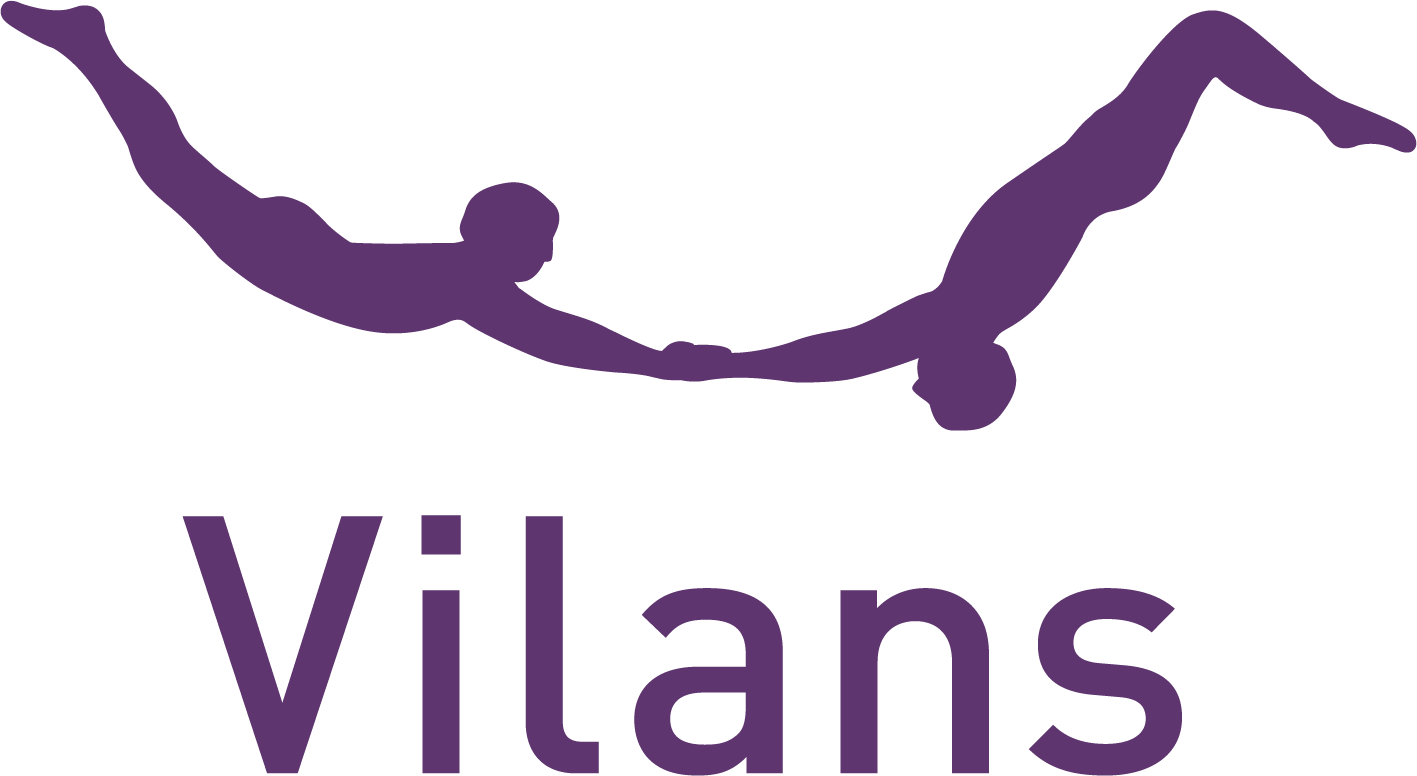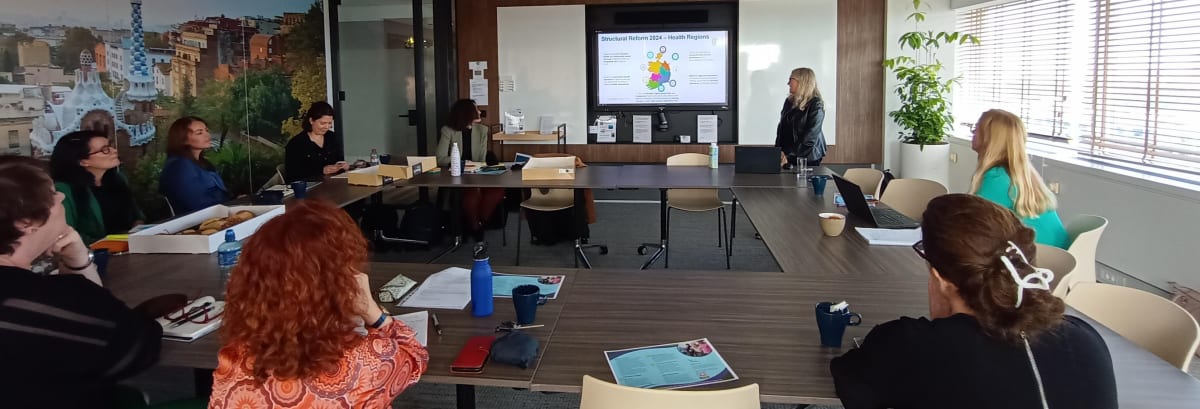Irish Delegation Visits Vilans To Explore Dutch Integrated Care
Published on: 28-10-2024
On October 24th, Vilans had the pleasure of hosting the Irish delegation from OECD Ireland, accompanied by policymakers from Ireland's Department of the Ministry of Health and the Health Service Executive (HSE). The visit was focused on learning about Dutch approaches to the design and implementation of integrated care. The interactive sessions provided a unique opportunity to exchange ideas on the organization, funding, and challenges of long-term and integrated care in both countries.
Prof. Mirella Minkman, Chairman of the board of Vilans, welcomed the delegation and opened with a presentation on Vilans' role as a knowledge institute in care and support.
As a knowledge institute, Vilans has a unique position in bridging the world of knowledge - both academic, professional and lived experience - and the world of practice, supporting care providers and driving innovation in a broad range of care settings. We serve as a critical link, translating research into actionable insights and good practices that make a tangible difference in care delivery and society. More over, we take the experiences from practice back into the realms of policy and research, creating a virtuous cycle where practical insights inform future innovations and policies.
Prof. Mirella Minkman
She highlighted the organization's involvement in large-scale programs like Dignity and Pride, and general medical care (MGZ) and others which contribute to transforming care and societies in the Netherlands.
Through these large-scale initiatives, we strive to ensure dignified, quality care and support for everyone who needs it, while also contributing to a resilient and integrated care system that is embedded in communities.
Prof. Mirella Minkman
Following this, Ephrem Tesfay, researcher at Vilans, provided an overview of the Dutch healthcare system, with a particular focus on long-term care. Ephrem discussed how care in the Netherlands is organized and financed, and the key challenges it faces today. He highlighted the major historical reforms that have shaped the Dutch long-term care system into its current situation today.
Our journey through reforms has always been about addressing growing care demands, managing costs, and maintaining quality. It was enlightening to learn how Ireland is approaching similar challenges in their context which offers us a valuable perspectives for addressing shared challenges.
Ephrem Tesfay
Mirella then delivered a more detailed presentation on integrated care in the Netherlands, focusing on governance and leadership. She explained the efforts that have gone into implementing integrated care at different levels—from national to community settings—and emphasized the lessons learned along the way. Her presentation set the stage for an engaging exchange, as Breda Rafter and her colleagues from the Irish delegation gave an overview of the Irish healthcare system, particularly its approach to integrated care, which has been evolving significantly since 2016.
It was a very engaging session, and we gained valuable insights into Ireland's Health System and their efforts in integrating care. We share several common challenges - such as a shrinking workforce, rising care demand, and increasing costs - but it was also inspiring to see the strides both countries have made, albeit with different approaches.
Ephrem Tesfay
The shared insights from this visit are expected to serve as a basis for future learning exchanges between Ireland and the Netherlands, particularly in areas of integrated care and workforce resilience.
The session truly underscored how international collaboration allows us to tackle shared challenges in healthcare from different angles. By exchanging our experiences and insights, we create opportunities to learn from one another and build on our collective strengths in this evolving field.
Prof. Mirella Minkman







